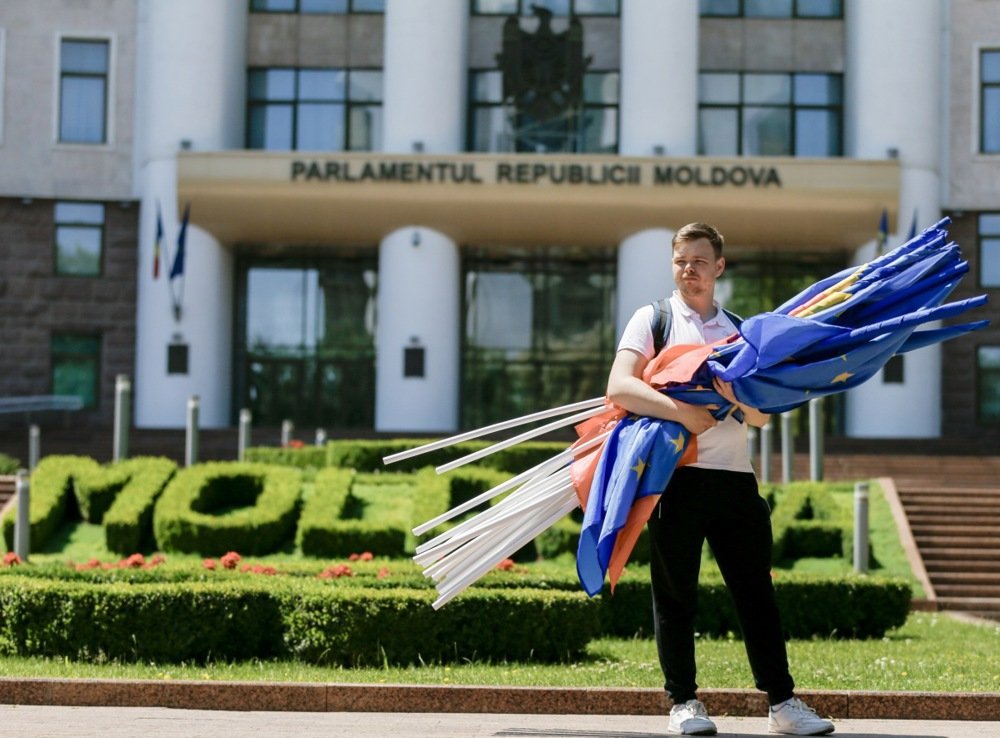
A young man holds flags after a march of PAS Youth, in front of Moldova’s Parliament in Chisinau, Moldova, 01 June 2024. Photo: EPA-EFE/DUMITRU DORU
The US, UK and Canada released a joint statement on Thursday accusing Russia of “subversive activity and electoral interference” in Moldova as the country prepares for a presidential election and a referendum on prospective EU membership later this year.
The three countries said that Russia was using “disinformation and propaganda” to “foment negative public perceptions” of Moldova’s pro-Western President Maia Sandu, and that it would “incite protests in Moldova should a pro-Russia candidate not win” in the country’s presidential election in October.
Russia was also employing “criminal groups to finance political activities and undermine Moldova’s democratic institutions”, the statement alleged.
The statement also singled out Russian state broadcaster RT for its “direct support” of pro-Russian Moldovan oligarch Ilan Shor, who was sentenced in absentia to 15 years in prison for money laundering in 2014 and sanctioned by the US in 2022 for working with “corrupt oligarchs and Moscow-based entities to create political unrest in Moldova”.
The three countries were working to help the Moldovan government “investigate, thwart, and disrupt the Kremlin’s plans” and would continue to introduce sanctions against “individuals and entities attempting to destabilise Moldova’s democratic institutions”, the statement concluded.
Moldovan Prime Minister Dorin Racean tweeted that he was grateful for the support of the US, UK and Canada in helping to “defend Moldova’s democracy” and that the Kremlin’s “attempts to undermine our sovereignty and incite unrest” would not succeed.
Russia has long been accused of interference in the internal affairs of Moldova, where it supports an unrecognised pro-Russian government in the breakaway region of Transnistria. In February 2023, Sandu revealed that Moscow had been plotting a coup to install a pro-Kremlin government to rule the whole country.
An opinion poll carried out by IRI in mid-2023 found that 63% of Moldovans wanted the country to join the EU, though the survey did not include residents of overwhelmingly pro-Russian Transnistria, which is home to around one fifth of Moldova’s total population.
